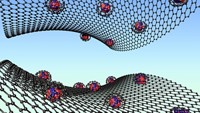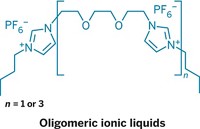Advertisement
Grab your lab coat. Let's get started
Welcome!
Welcome!
Create an account below to get 6 C&EN articles per month, receive newsletters and more - all free.
It seems this is your first time logging in online. Please enter the following information to continue.
As an ACS member you automatically get access to this site. All we need is few more details to create your reading experience.
Not you? Sign in with a different account.
Not you? Sign in with a different account.
ERROR 1
ERROR 1
ERROR 2
ERROR 2
ERROR 2
ERROR 2
ERROR 2
Password and Confirm password must match.
If you have an ACS member number, please enter it here so we can link this account to your membership. (optional)
ERROR 2
ACS values your privacy. By submitting your information, you are gaining access to C&EN and subscribing to our weekly newsletter. We use the information you provide to make your reading experience better, and we will never sell your data to third party members.
Synthesis
Higher Yielding Buckyball Synthesis
August 18, 2008
| A version of this story appeared in
Volume 86, Issue 33

By capitalizing on a surface-catalyzed cyclodehydrogenation reaction, scientists in Spain have developed a synthesis that produces fullerene molecules in high yields (Nature 2008, 454, 865). Fullerenes, also known as buckyballs for their soccer-ball shapes, are typically made by vaporizing graphite—a method that works well but lacks the control of a rational synthesis. The new procedure, developed by Berta Gómez-Lor and José A. Martín-Gago at the Materials Science Institute of Madrid and coworkers, could give chemists a method for producing unusual buckyball variants and derivatives. The researchers used the method to prepare C60 and C57N3 fullerenes. They started out by synthesizing the propeller-shaped polyaromatic precursors C60H30 and C57H33N3, then deposited the precursors onto a catalytically active platinum surface by vacuum thermal evaporation. Annealing the material at 750 K prompts the cyclodehydrogenation reaction to take place, producing the desired fullerene in about 100% yield. It’s a vast improvement over a previous chemical synthesis of C60, which only produced the molecule with 1% yield. “We expect that this approach will allow the production of a range of other fullerenes and heterofullerenes, once suitable precursors are available,” the researchers note.





Join the conversation
Contact the reporter
Submit a Letter to the Editor for publication
Engage with us on Twitter